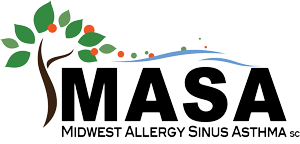
Do you love lobster, but can’t eat it because you’re allergic to shellfish? Does even the thought of peanuts make you sweat, because any exposure to nuts can send you into anaphylactic shock? Midwest Allergy Sinus Asthma, with seven offices in Illinois, offers oral food immunotherapy, a treatment that desensitizes you to specific food allergens, so you don’t have an allergic reaction when you eat or otherwise come in contact with allergy-inducing foods.
What is a food allergy?
A food allergy occurs when your body treats a certain food as a foreign and harmful invader. When you eat these foods, your body can react with these symptoms:
- Hives, rash, and itching
- Swelling of the tongue, throat, or lips
- Trouble breathing, wheezing, or shortness of breath
- Stomach distress including diarrhea, pain, or vomiting
Anaphylaxis, in which airways can swell to the point of closing, is the most severe allergic reaction. It requires immediate emergency medical care.
What is oral food immunotherapy?
Oral food immunotherapy is an oral (rather than injection) allergy treatment that retrains your immune system to tolerate food you’re allergic too, thus relieving you of food stress and fear. During treatments, you’ll eat powdered food protein mixed with food.
During oral food immunotherapy, the allergist introduces the smallest amount of a food protein that your body can tolerate without reaction into your body. For instance, if you have a peanut allergy, the allergist could first introduce 1/40,000th of a peanut into your body. Over time, the amount of food protein is gradually increased until your immune and digestive systems change the way they react to foods that previously caused allergic reactions.
What food allergies can oral food immunotherapy treat?
Theoretically, oral food immunotherapy can treat allergies to any food. The top five food allergies are:
- Tree nuts
- Peanuts
- Eggs
- Shellfish
- Milk
What are the side effects of oral food immunotherapy?
Although oral food immunotherapy is routine in Japan and parts of Europe, the therapy is still controversial in the U.S., even though clinical trials have shown that it is effective up to 80% of the time.
An allergic reaction is the most common risk of oral food immunotherapy. To reduce the likelihood of allergic reactions, you should refrain from physical activity within 2 hours of your allergy appointment, and eat something before appointments so you don’t undergo the therapy with an empty stomach.
Other side effects of oral food immunotherapy include:
- Abdominal pain
- Cramping
- Vomiting
- Hives and rashes
- Anaphylaxis
If food allergies are taking the fun out of your life, call your nearest Midwest Allergy Sinus Asthma office, in Normal, Springfield, Carlinville, Sherman, Jacksonville, Morton, or Taylorville.
